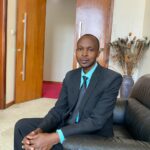ahimbisibwe pison
About Candidate
Accountant:
An accountant is a professional who specializes in managing and analysing financial records and transactions. I used to play a crucial role in organizations by ensuring accurate financial reporting, maintaining financial records, and providing financial information for decision-making purposes. I also used to handle tasks such as bookkeeping, preparing financial statements, managing budgets, analysing costs and revenues, and ensuring compliance with tax regulations and accounting standards.
Economist:
An economist focuses on the study of production, distribution, and consumption of goods and services. I analysed economic data, trends, and theories to understand and predict the behaviour of individuals, businesses, and governments in relation to economic factors. I also studied various aspects of the economy, such as employment, inflation, monetary policy, international trade, and market dynamics.
Auditor:
An auditor is a professional who examines and evaluates financial records, statements, and systems to ensure accuracy, transparency, and compliance with applicable laws, regulations, and accounting standards. I also used to work independently or as part of an auditing firm to assess an organization’s financial controls, internal processes, and risk management procedures. My primary objective was to provide an unbiased opinion on the fairness and reliability of financial statements and reports.
Location
Education
Economics and Statistics is an interdisciplinary course that combines concepts and methodologies from both economics and statistics. It is designed to provide students with a comprehensive understanding of economic theories and principles, as well as the tools and techniques used to analyze and interpret economic data. In this course, students learn about various economic theories, including microeconomics and macroeconomics. Microeconomics focuses on the behavior of individual agents, such as consumers and firms, and examines how their decisions impact markets. Macroeconomics, on the other hand, studies the overall performance of an economy, including factors such as inflation, unemployment, and economic growth. Statistics plays a crucial role in economics by providing the means to collect, organize, analyze, and interpret economic data. In the course, students learn statistical techniques and methods that are commonly used in economic research and analysis. This includes topics such as probability theory, hypothesis testing, regression analysis, and econometric modeling.





